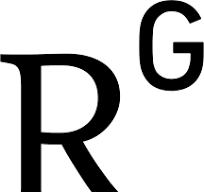Welcome to The Etherington Lab!

Dr Marc Etherington
Assistant Professor of Molecular Photophysics |
School of Engineering, Physics and Mathematics |
Northumbria University
Research Vision
I reveal the fundamental photophysical mechanisms behind thermally activated delayed fluorescence - specifically the spin-vibronic coupling that enables efficient reverse intersystem crossing, and how molecular interactions beyond the single molecule affect real-world performance in devices and applications.
Current Roles & Affiliations
🏛️ Assistant Professor
Northumbria University
School of Engineering, Physics and Mathematics
Since 2020 (promoted 2022)
🎓 Junior Research Fellow
Hatfield College, Durham University
Since 2017
⚡ Energy Futures Network Lead
Northumbria University
Interdisciplinary Carbon Net Zero initiative
🤝 Academic Visitor
Durham University
Collaboration with Prof. Andy Monkman
Since 2020
🤝 Academic Visitor
University of Osaka
Collaboration with Dr Youhei Takeda
August 2025 to October 2025
Research Expertise
Academic Journey
Marc Etherington (b. 1988) started at Northumbria University in January 2020 as a Vice-Chancellor’s Senior Fellow in the Department of Mathematics, Physics and Electrical Engineering. In 2022 he became Assistant Professor and he continues to lead his research in the spectroscopic study of organic light-emitting materials. Marc is also the lead of the Energy Futures Network at Northumbria an inter-faculty and interdisciplinary network that brings academics from across the University to work towards Carbon Net Zero. Marc works closely with colleagues in the Department of Applied Sciences, in particular Dr Jon Knowles with whom he shares co-supervision of PhD students to ensure the wider Knowles-Etherington Group can tackle synthetic and spectroscopic challenges in parallel.
Major Research Breakthroughs
⚡ Spin-Vibronic Coupling (2016)
Nature Communications
Discovered the second-order vibronic mechanism that enables TADF. Cited 950+ times. Established resonance of energy levels as key design criterion.
💡 Dimers and Aggregates (2019)
JPCC
Revealed how molecular dimers affect solid-state emission. Shifted field focus from isolated molecules to real-world interactions.
📚 TADF: Beyond the Single Molecule (2020)
Frontiers (Sole Author)
Established framework for studying intermolecular interactions and solid-state effects in TADF materials.
🎓 Prospective Students
Interested in joining the group? We're looking for motivated PhD students and PDRAs to work on exciting projects involving light-emitting materials and their applications.
Learn More🤝 Collaborators
Want to collaborate on photophysics research? Explore our current projects and expertise.
View Research📚 Publications
Browse our complete publication record spanning the fundamentals of organic molecule spectroscopy.
See Publications


